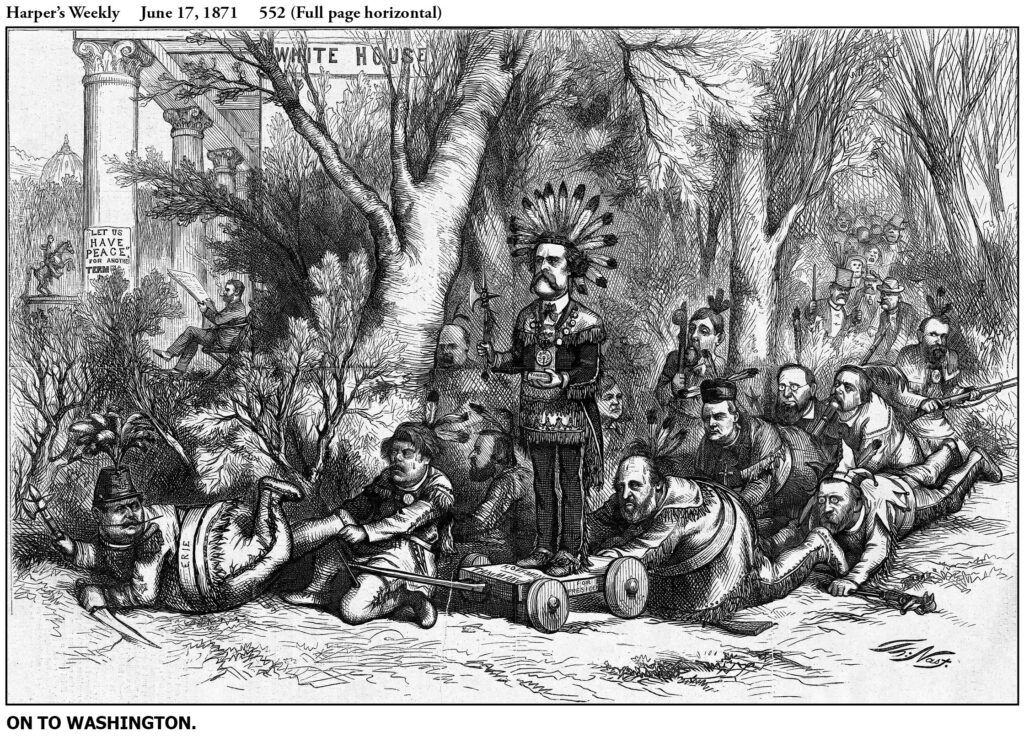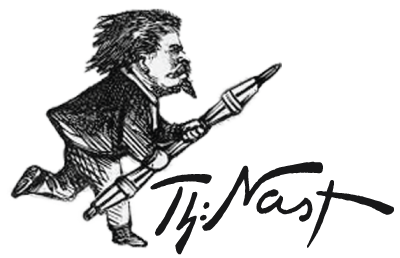
Harper’s Weekly – June 17, 1871
As talk about Tweed’s and Hoffman’s national ambitions increased, Nast — who was determined to do all he could to help Grant get reelected in 1872 — had an extra burr under his artistic saddle. He responded to the threat with two major cartoons and several vignettes.
On to Washington featured Tweed and his not-so-merry men creeping furtively through the forest towards the White House where President Grant imperturbably was reading the paper and smoking a cigar. His campaign slogan “Let Us Have Peace for Another TERM” stated Nast’s case. This apparently was Nast’s only cartoon in which both Grant and Tweed appeared.
Hoffman was a cigar-store Indian and his Ring associates all wore feathers, based on the Tammany Society’s designation of their leaders as “sachems” (Indian chiefs). Crooked financiers Jim Fisk and Jay Gould and their lawyer Thomas Shearman of the Erie (Railroad) Ring were prominent, along with Archbishop John McCloskey, who had succeeded Dagger John Hughes, and his Irish followers (in the rear).
Nast wove some political subtleties into his cartoon that underscored his acumen. The title was a jab at Horace Greeley, whose 1861 “On to Richmond” editorial urging Lincoln to move forward prematurely, helped lead to the Union disaster at Bull Run. Now, Greeley had just returned from a southern trip in which he flew his own trial balloon for the 1872 Democratic nomination.
Even more astutely, Nast showed Sweeny perspiring and looking alarmed; he had dropped the handle of Hoffman’s wheeled platform and grabbed Fisk’s foot to halt his progress. Behind, Tweed also was sweating and appeared exhausted, and jester Hall looked concerned. Why?
As Nast explained to his biographer Albert Paine, Samuel Tilden had presidential ambitions of his own. Tilden had been counsel for the Erie directors, when Tweed and Sweeny were on that board, and Tweed had unsuccessfully tried to dump him as Democratic National Chairman; Sweeny prevailed on Tweed to drop that effort. “Brains” Sweeny, who wanted no prominent public office for himself, probably saw the danger in blocking Tilden who knew where all the bodies were buried and would help reveal them shortly.
